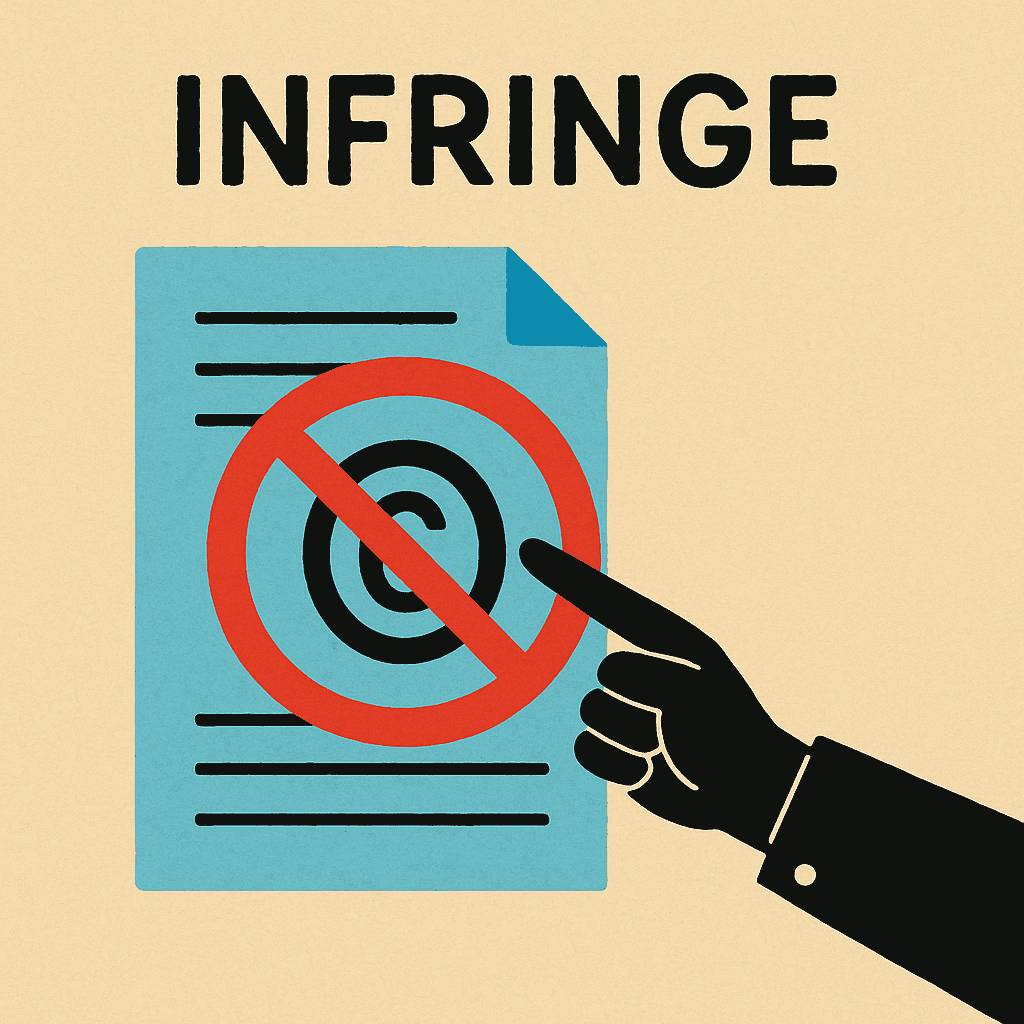Meaning
Infringe means to violate, break, or act against a rule, law, or someone’s rights.
It often refers to legal or moral violations, such as infringing on copyrights, patents, or personal freedoms.
Grammar and Usage
- Part of Speech: Verb (usually transitive)
- Common structures:
- infringe + law/right/rule
- infringe on/upon + right/freedom/privacy
Notes:
- “Infringe” without a preposition is used when referring directly to laws or regulations.
→ He infringed the company’s rules. - “Infringe on/upon” is used when referring to intangible things like rights or freedoms.
→ That law infringes on our freedom of speech.
Common Phrases
- infringe the law – break a law or regulation
- infringe on someone’s rights – violate someone’s rights
- copyright infringement – the act of using someone’s creative work without permission
- patent infringement – unauthorized use of a patented invention
Collocations
| Type | Examples |
|---|---|
| Verb + infringe | clearly infringe, intentionally infringe, unlawfully infringe |
| Noun + infringe | law, copyright, rule, regulation, patent |
| Infringe + noun | the law, copyright, human rights, privacy |
| Infringe + on/upon + noun | rights, liberty, freedom, privacy |
Examples
- The company was sued for infringing a patent owned by another firm.
- Such actions infringe on individual privacy.
- Copying music without permission infringes copyright laws.
- He claimed that the new regulation infringes upon his freedom of expression.
- The court decided that the advertisement did not infringe any trademarks.
- Governments must ensure that security measures do not infringe on human rights.
- Downloading pirated movies infringes copyright and is illegal.
- She was accused of infringing the company’s code of conduct.
Synonyms or Related
- violate
- breach
- transgress
- contravene
- encroach (on)
- trespass (on)
Antonym
- comply (with)
- obey
- respect
- uphold
